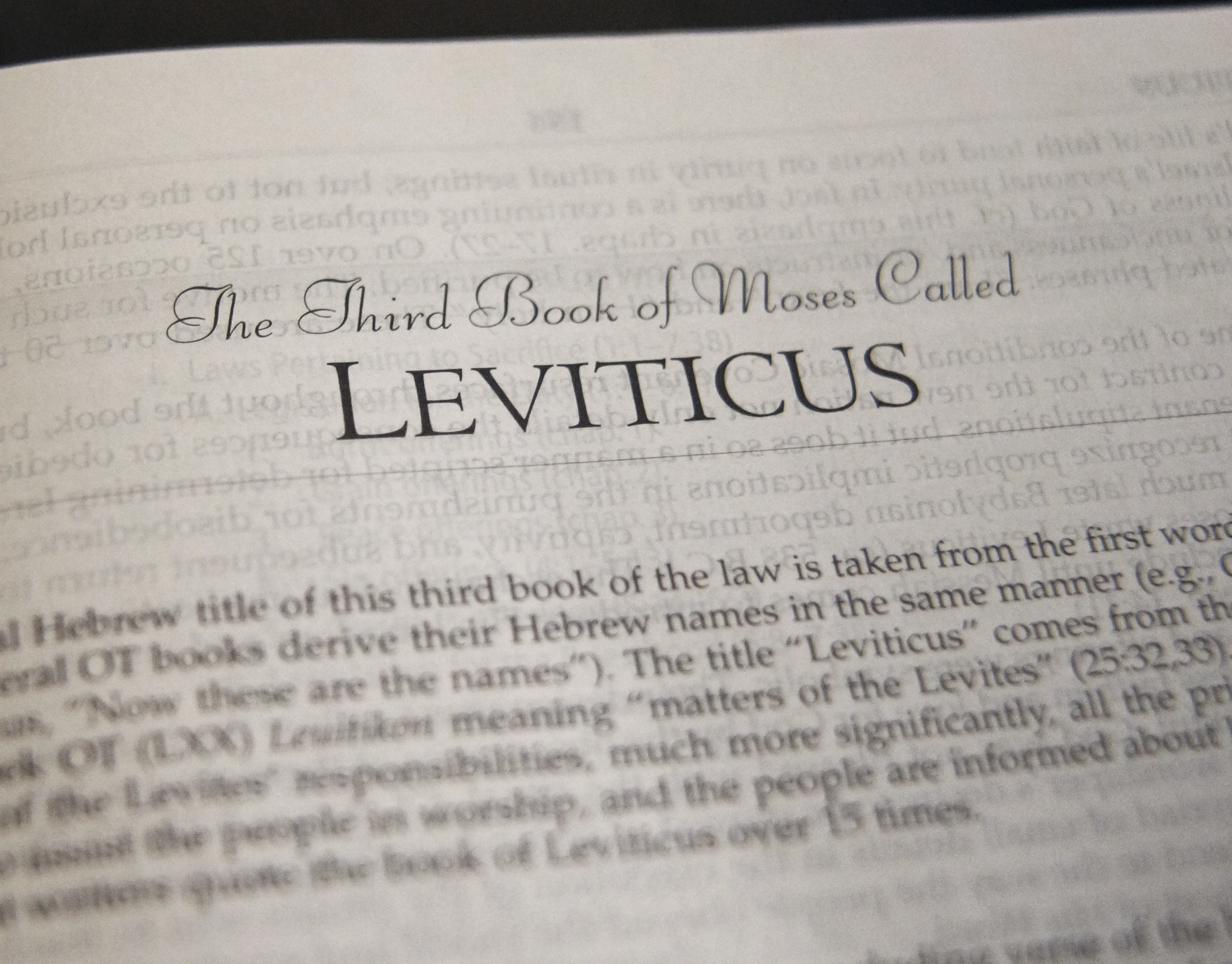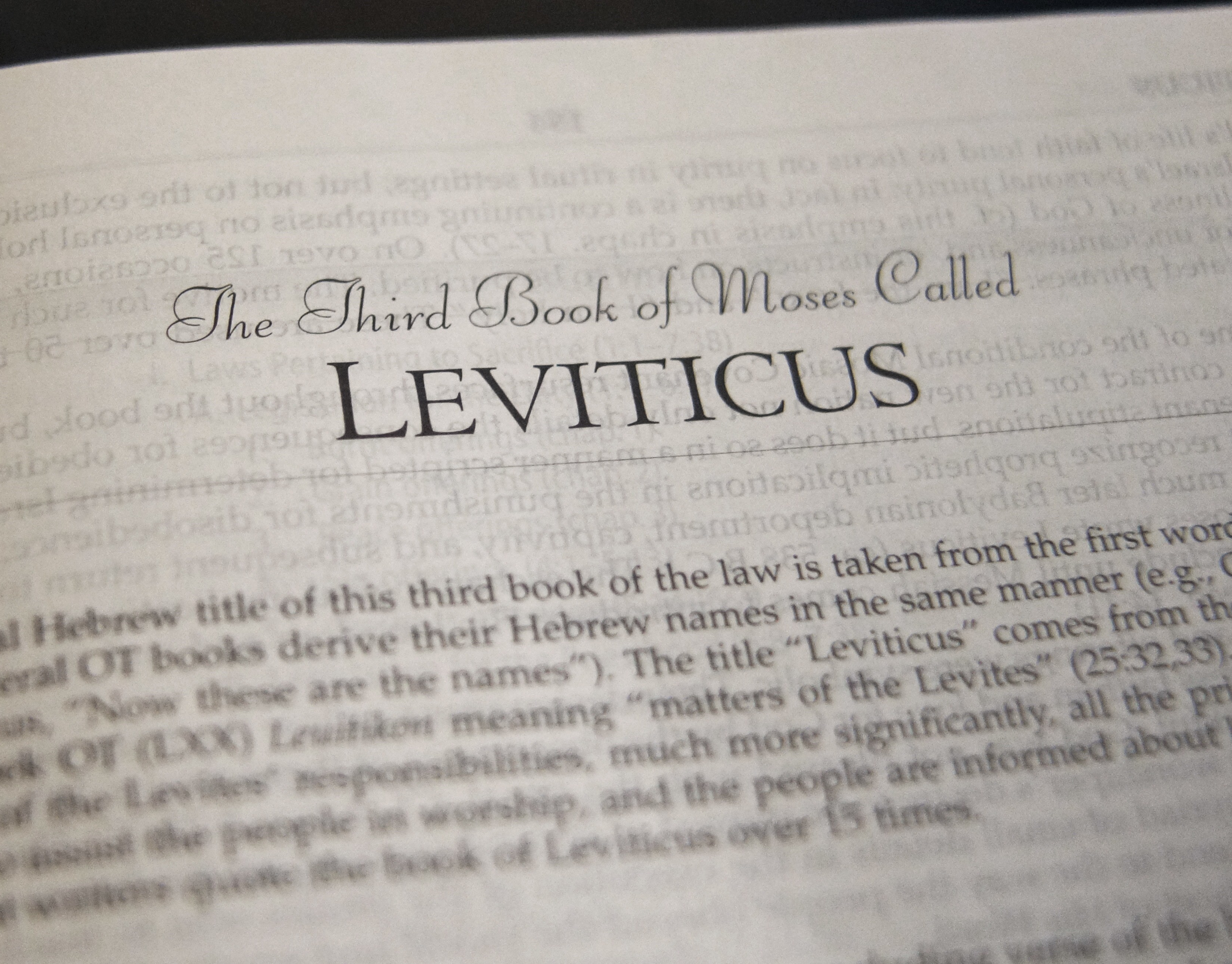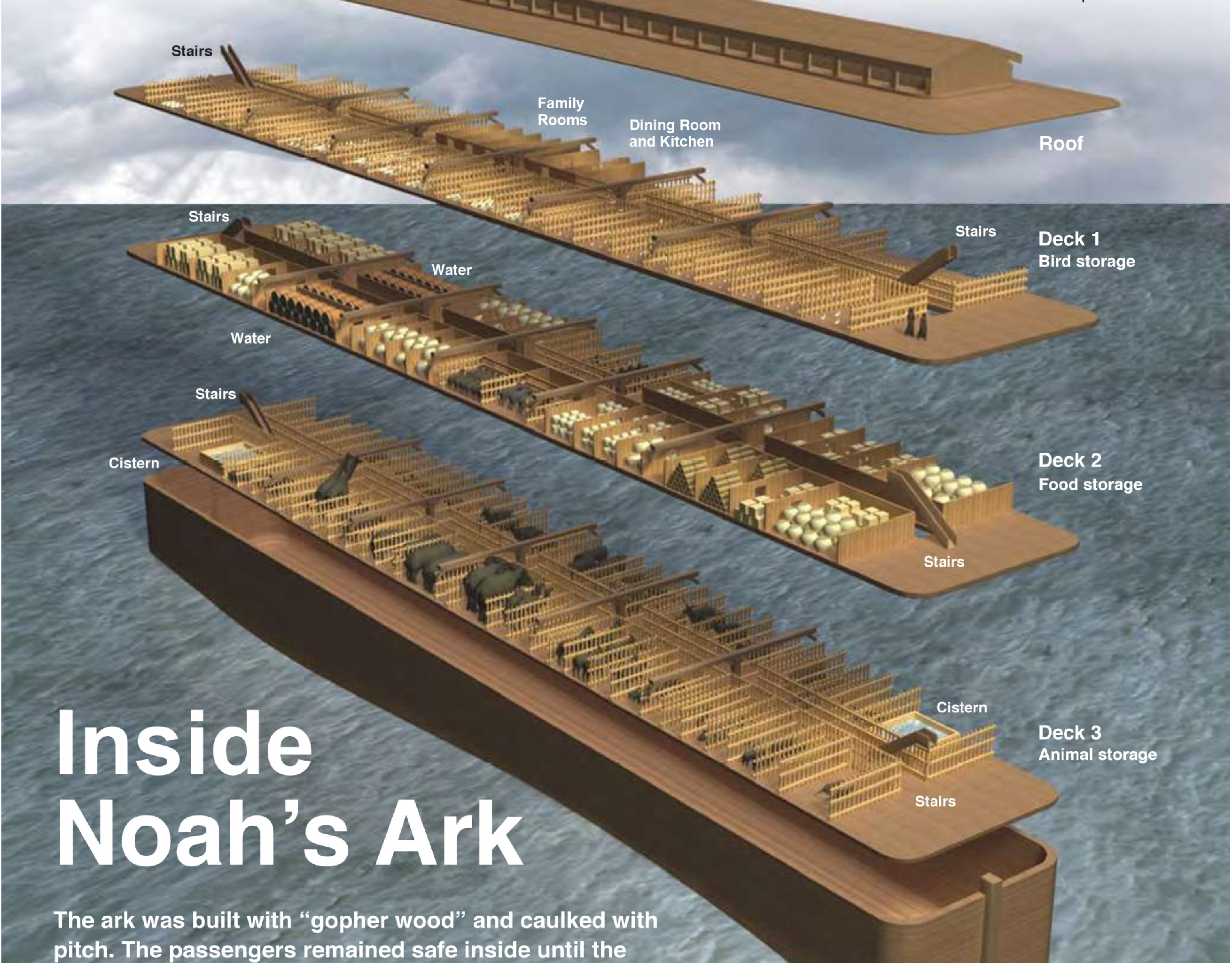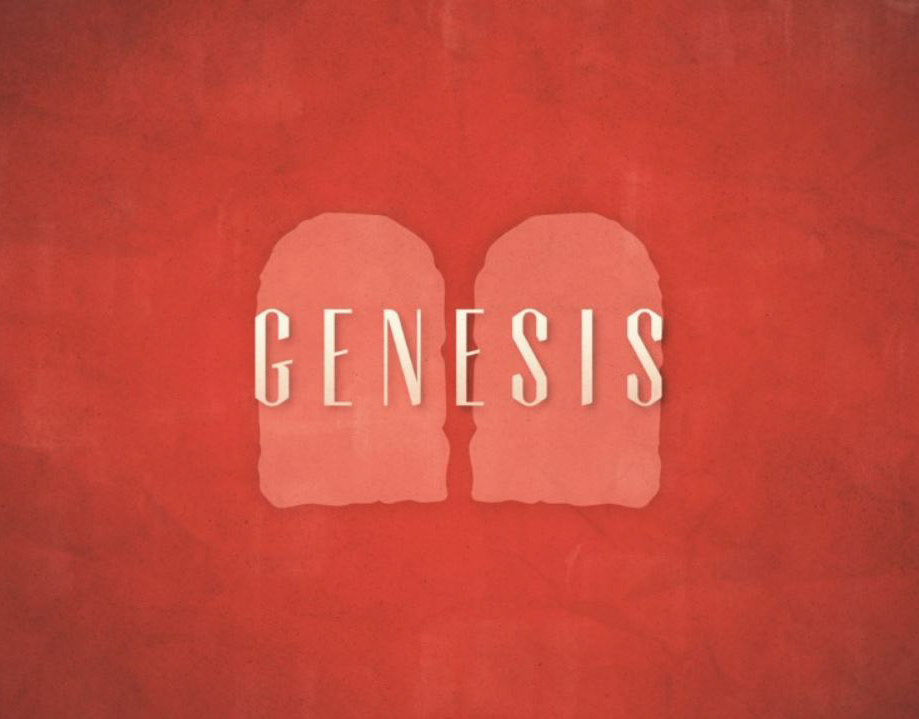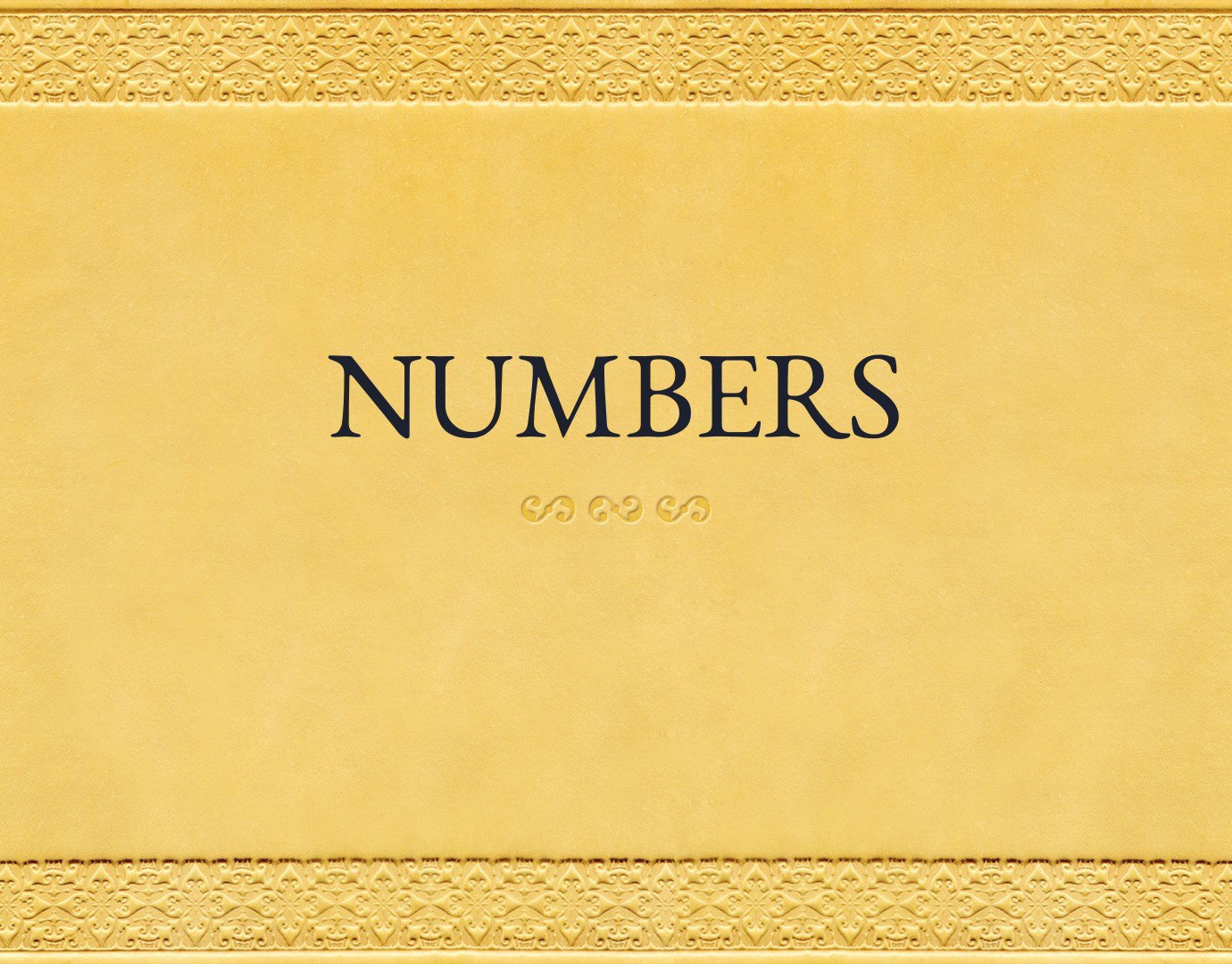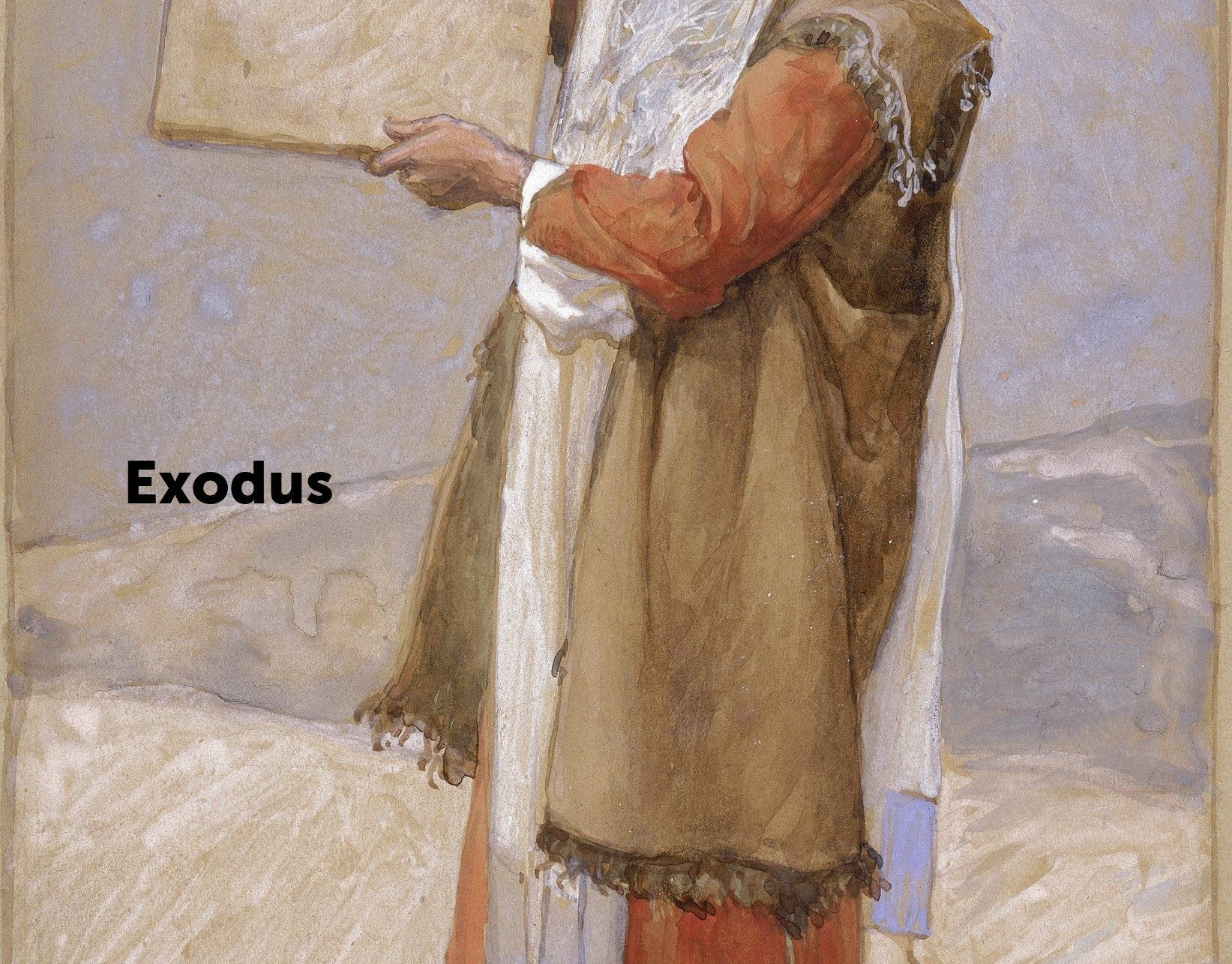Job 39-42
39 “Do you know when the mountain goats give birth?
Do you observe the calving of the does?
2 Can you number the months that they fulfill,
and do you know the time when they give birth,
3 when they crouch, bring forth their offspring,
and are delivered of their young?
4 Their young ones become strong; they grow up in the open;
they go out and do not return to them.
5 “Who has let the wild donkey go free?
Who has loosed the bonds of the swift donkey,
6 to whom I have given the arid plain for his home
and the salt land for his dwelling place?
7 He scorns the tumult of the city;
he hears not the shouts of the driver.
8 He ranges the mountains as his pasture,
and he searches after every green thing.
9 “Is the wild ox willing to serve you?
Will he spend the night at your manger?
10 Can you bind him in the furrow with ropes,
or will he harrow the valleys after you?
11 Will you depend on him because his strength is great,
and will you leave to him your labor?
12 Do you have faith in him that he will return your grain
and gather it to your threshing floor?
13 “The wings of the ostrich wave proudly,
but are they the pinions and plumage of love?
14 For she leaves her eggs to the earth
and lets them be warmed on the ground,
15 forgetting that a foot may crush them
and that the wild beast may trample them.
16 She deals cruelly with her young, as if they were not hers;
though her labor be in vain, yet she has no fear,
17 because God has made her forget wisdom
and given her no share in understanding.
18 When she rouses herself to flee,
she laughs at the horse and his rider.
19 “Do you give the horse his might?
Do you clothe his neck with a mane?
20 Do you make him leap like the locust?
His majestic snorting is terrifying.
21 He paws in the valley and exults in his strength;
he goes out to meet the weapons.
22 He laughs at fear and is not dismayed;
he does not turn back from the sword.
23 Upon him rattle the quiver,
the flashing spear, and the javelin.
24 With fierceness and rage he swallows the ground;
he cannot stand still at the sound of the trumpet.
25 When the trumpet sounds, he says ‘Aha!’
He smells the battle from afar,
the thunder of the captains, and the shouting.
26 “Is it by your understanding that the hawk soars
and spreads his wings toward the south?
27 Is it at your command that the eagle mounts up
and makes his nest on high?
28 On the rock he dwells and makes his home,
on the rocky crag and stronghold.
29 From there he spies out the prey;
his eyes behold it from far away.
30 His young ones suck up blood,
and where the slain are, there is he.”
40 And the Lord said to Job:
2 “Shall a faultfinder contend with the Almighty?
He who argues with God, let him answer it.”
Job Promises Silence
3 Then Job answered the Lord and said:
4 “Behold, I am of small account; what shall I answer you?
I lay my hand on my mouth.
5 I have spoken once, and I will not answer;
twice, but I will proceed no further.”
The Lord Challenges Job
6 Then the Lord answered Job out of the whirlwind and said:
7 “Dress for action like a man;
I will question you, and you make it known to me.
8 Will you even put me in the wrong?
Will you condemn me that you may be in the right?
9 Have you an arm like God,
and can you thunder with a voice like his?
10 “Adorn yourself with majesty and dignity;
clothe yourself with glory and splendor.
11 Pour out the overflowings of your anger,
and look on everyone who is proud and abase him.
12 Look on everyone who is proud and bring him low
and tread down the wicked where they stand.
13 Hide them all in the dust together;
bind their faces in the world below.
14 Then will I also acknowledge to you
that your own right hand can save you.
15 “Behold, Behemoth,
which I made as I made you;
he eats grass like an ox.
16 Behold, his strength in his loins,
and his power in the muscles of his belly.
17 He makes his tail stiff like a cedar;
the sinews of his thighs are knit together.
18 His bones are tubes of bronze,
his limbs like bars of iron.
19 “He is the first of the works of God;
let him who made him bring near his sword!
20 For the mountains yield food for him
where all the wild beasts play.
21 Under the lotus plants he lies,
in the shelter of the reeds and in the marsh.
22 For his shade the lotus trees cover him;
the willows of the brook surround him.
23 Behold, if the river is turbulent he is not frightened;
he is confident though Jordan rushes against his mouth.
24 Can one take him by his eyes,
or pierce his nose with a snare?
41 “Can you draw out Leviathan with a fishhook
or press down his tongue with a cord?
2 Can you put a rope in his nose
or pierce his jaw with a hook?
3 Will he make many pleas to you?
Will he speak to you soft words?
4 Will he make a covenant with you
to take him for your servant forever?
5 Will you play with him as with a bird,
or will you put him on a leash for your girls?
6 Will traders bargain over him?
Will they divide him up among the merchants?
7 Can you fill his skin with harpoons
or his head with fishing spears?
8 Lay your hands on him;
remember the battle—you will not do it again!
9 Behold, the hope of a man is false;
he is laid low even at the sight of him.
10 No one is so fierce that he dares to stir him up.
Who then is he who can stand before me?
11 Who has first given to me, that I should repay him?
Whatever is under the whole heaven is mine.
12 “I will not keep silence concerning his limbs,
or his mighty strength, or his goodly frame.
13 Who can strip off his outer garment?
Who would come near him with a bridle?
14 Who can open the doors of his face?
Around his teeth is terror.
15 His back is made of rows of shields,
shut up closely as with a seal.
16 One is so near to another
that no air can come between them.
17 They are joined one to another;
they clasp each other and cannot be separated.
18 His sneezings flash forth light,
and his eyes are like the eyelids of the dawn.
19 Out of his mouth go flaming torches;
sparks of fire leap forth.
20 Out of his nostrils comes forth smoke,
as from a boiling pot and burning rushes.
21 His breath kindles coals,
and a flame comes forth from his mouth.
22 In his neck abides strength,
and terror dances before him.
23 The folds of his flesh stick together,
firmly cast on him and immovable.
24 His heart is hard as a stone,
hard as the lower millstone.
25 When he raises himself up, the mighty are afraid;
at the crashing they are beside themselves.
26 Though the sword reaches him, it does not avail,
nor the spear, the dart, or the javelin.
27 He counts iron as straw,
and bronze as rotten wood.
28 The arrow cannot make him flee;
for him, sling stones are turned to stubble.
29 Clubs are counted as stubble;
he laughs at the rattle of javelins.
30 His underparts are like sharp potsherds;
he spreads himself like a threshing sledge on the mire.
31 He makes the deep boil like a pot;
he makes the sea like a pot of ointment.
32 Behind him he leaves a shining wake;
one would think the deep to be white-haired.
33 On earth there is not his like,
a creature without fear.
34 He sees everything that is high;
he is king over all the sons of pride.”
Job’s Confession and Repentance
42 Then Job answered the Lord and said:
2 “I know that you can do all things,
and that no purpose of yours can be thwarted.
3 ‘Who is this that hides counsel without knowledge?’
Therefore I have uttered what I did not understand,
things too wonderful for me, which I did not know.
4 ‘Hear, and I will speak;
I will question you, and you make it known to me.’
5 I had heard of you by the hearing of the ear,
but now my eye sees you;
6 therefore I despise myself,
and repent in dust and ashes.”
The Lord Rebukes Job’s Friends
7 After the Lord had spoken these words to Job, the Lord said to Eliphaz the Temanite: “My anger burns against you and against your two friends, for you have not spoken of me what is right, as my servant Job has. 8 Now therefore take seven bulls and seven rams and go to my servant Job and offer up a burnt offering for yourselves. And my servant Job shall pray for you, for I will accept his prayer not to deal with you according to your folly. For you have not spoken of me what is right, as my servant Job has.” 9 So Eliphaz the Temanite and Bildad the Shuhite and Zophar the Naamathite went and did what the Lord had told them, and the Lord accepted Job’s prayer.
The Lord Restores Job’s Fortunes
10 And the Lord restored the fortunes of Job, when he had prayed for his friends. And the Lord gave Job twice as much as he had before. 11 Then came to him all his brothers and sisters and all who had known him before, and ate bread with him in his house. And they showed him sympathy and comforted him for all the evil that the Lord had brought upon him. And each of them gave him a piece of money and a ring of gold.
12 And the Lord blessed the latter days of Job more than his beginning. And he had 14,000 sheep, 6,000 camels, 1,000 yoke of oxen, and 1,000 female donkeys. 13 He had also seven sons and three daughters. 14 And he called the name of the first daughter Jemimah, and the name of the second Keziah, and the name of the third Keren-happuch. 15 And in all the land there were no women so beautiful as Job’s daughters. And their father gave them an inheritance among their brothers. 16 And after this Job lived 140 years, and saw his sons, and his sons’ sons, four generations. 17 And Job died, an old man, and full of days. [1]
Thoughts:
You know one thing we never discover in Job is why God permitted this and how God is just. Job has been tested and while we could try to say our faith would still be there… I don’t really want to prove it. I hope we can all have faith like Job, who even with errored friends and satans schemes his faith and integrity remain. Simply put “But why? Was it simply because Job was a stronger-willed person than Satan imagined? No, it was because God, who grants and sustains faith, guided Job through his crisis, even when Job was not conscious of God’s help. God implies as much when he reminds Job that he cares for mountain goats, wild donkeys and oxen, ostriches, horses, hawks and eagles (Job 39). Surely, God takes care of humans, too (Matt 6:26)! Job’s faith endures because God, who grants, sustains and nourishes faith remains faithful to Job, even when Job questions and doubts God. Therefore, the message of this book is that more important than knowing God’s ways with justice is knowing God’s work in our life to bring us to faith and preserve us as his children.”[2] Maybe not the explanation we want as we finish our first book of the reading, but maybe that’s the catch, it’s not about what we want. Lots of people read scripture to discover answers about whatever they may be going through, and the truth is there are life lessons involved in scripture, but it is never the theme. On day 1 I pointed out John 5:39 “You search the Scriptures because you think that in them you have eternal life; and it is they that bear witness about me” so the theme here is not about whatever we have going on in life, heck it’s not even about Job. The primary theme here is that whether we are “deserving” or not, well off or poor, nothing we do or fail to do can give us any hope, only God’s love provides us hope, it is the only thing Job could cling to, his redeemer. And it is the only thing I can cling to, so the question is are we as confident of God’s mercy as Job?
[1] The Holy Bible: English Standard Version (Wheaton, IL: Crossway Bibles, 2016), Job 39–42:17.
[2] Andrew E. Steinmann, Michael Eschelbach, Curtis Giese, et al., Called to Be God’s People: An Introduction to the Old Testament, ed. Andrew E. Steinmann, vol. 1, Called by the Gospel (Eugene, OR: Wipf & Stock Publishers, 2006), 386–387.
Genesis 12-15
The Call of Abram
12 Now the Lord said to Abram, “Go from your country and your kindred and your father’s house to the land that I will show you. 2 And I will make of you a great nation, and I will bless you and make your name great, so that you will be a blessing. 3 I will bless those who bless you, and him who dishonors you I will curse, and in you all the families of the earth shall be blessed.”
4 So Abram went, as the Lord had told him, and Lot went with him. Abram was seventy-five years old when he departed from Haran. 5 And Abram took Sarai his wife, and Lot his brother’s son, and all their possessions that they had gathered, and the people that they had acquired in Haran, and they set out to go to the land of Canaan. When they came to the land of Canaan, 6 Abram passed through the land to the place at Shechem, to the oak of Moreh. At that time the Canaanites were in the land. 7 Then the Lord appeared to Abram and said, “To your offspring I will give this land.” So he built there an altar to the Lord, who had appeared to him. 8 From there he moved to the hill country on the east of Bethel and pitched his tent, with Bethel on the west and Ai on the east. And there he built an altar to the Lord and called upon the name of the Lord. 9 And Abram journeyed on, still going toward the Negeb.
Abram and Sarai in Egypt
10 Now there was a famine in the land. So Abram went down to Egypt to sojourn there, for the famine was severe in the land. 11 When he was about to enter Egypt, he said to Sarai his wife, “I know that you are a woman beautiful in appearance, 12 and when the Egyptians see you, they will say, ‘This is his wife.’ Then they will kill me, but they will let you live. 13 Say you are my sister, that it may go well with me because of you, and that my life may be spared for your sake.” 14 When Abram entered Egypt, the Egyptians saw that the woman was very beautiful. 15 And when the princes of Pharaoh saw her, they praised her to Pharaoh. And the woman was taken into Pharaoh’s house. 16 And for her sake he dealt well with Abram; and he had sheep, oxen, male donkeys, male servants, female servants, female donkeys, and camels.
17 But the Lord afflicted Pharaoh and his house with great plagues because of Sarai, Abram’s wife. 18 So Pharaoh called Abram and said, “What is this you have done to me? Why did you not tell me that she was your wife? 19 Why did you say, ‘She is my sister,’ so that I took her for my wife? Now then, here is your wife; take her, and go.” 20 And Pharaoh gave men orders concerning him, and they sent him away with his wife and all that he had.
Abram and Lot Separate
13 So Abram went up from Egypt, he and his wife and all that he had, and Lot with him, into the Negeb.
2 Now Abram was very rich in livestock, in silver, and in gold. 3 And he journeyed on from the Negeb as far as Bethel to the place where his tent had been at the beginning, between Bethel and Ai, 4 to the place where he had made an altar at the first. And there Abram called upon the name of the Lord. 5 And Lot, who went with Abram, also had flocks and herds and tents, 6 so that the land could not support both of them dwelling together; for their possessions were so great that they could not dwell together, 7 and there was strife between the herdsmen of Abram’s livestock and the herdsmen of Lot’s livestock. At that time the Canaanites and the Perizzites were dwelling in the land.
8 Then Abram said to Lot, “Let there be no strife between you and me, and between your herdsmen and my herdsmen, for we are kinsmen. 9 Is not the whole land before you? Separate yourself from me. If you take the left hand, then I will go to the right, or if you take the right hand, then I will go to the left.” 10 And Lot lifted up his eyes and saw that the Jordan Valley was well watered everywhere like the garden of the Lord, like the land of Egypt, in the direction of Zoar. (This was before the Lord destroyed Sodom and Gomorrah.) 11 So Lot chose for himself all the Jordan Valley, and Lot journeyed east. Thus they separated from each other. 12 Abram settled in the land of Canaan, while Lot settled among the cities of the valley and moved his tent as far as Sodom. 13 Now the men of Sodom were wicked, great sinners against the Lord.
14 The Lord said to Abram, after Lot had separated from him, “Lift up your eyes and look from the place where you are, northward and southward and eastward and westward, 15 for all the land that you see I will give to you and to your offspring forever. 16 I will make your offspring as the dust of the earth, so that if one can count the dust of the earth, your offspring also can be counted. 17 Arise, walk through the length and the breadth of the land, for I will give it to you.” 18 So Abram moved his tent and came and settled by the oaks of Mamre, which are at Hebron, and there he built an altar to the Lord.
Abram Rescues Lot
14 In the days of Amraphel king of Shinar, Arioch king of Ellasar, Chedorlaomer king of Elam, and Tidal king of Goiim, 2 these kings made war with Bera king of Sodom, Birsha king of Gomorrah, Shinab king of Admah, Shemeber king of Zeboiim, and the king of Bela (that is, Zoar). 3 And all these joined forces in the Valley of Siddim (that is, the Salt Sea). 4 Twelve years they had served Chedorlaomer, but in the thirteenth year they rebelled. 5 In the fourteenth year Chedorlaomer and the kings who were with him came and defeated the Rephaim in Ashteroth-karnaim, the Zuzim in Ham, the Emim in Shaveh-kiriathaim, 6 and the Horites in their hill country of Seir as far as El-paran on the border of the wilderness. 7 Then they turned back and came to En-mishpat (that is, Kadesh) and defeated all the country of the Amalekites, and also the Amorites who were dwelling in Hazazon-tamar.
8 Then the king of Sodom, the king of Gomorrah, the king of Admah, the king of Zeboiim, and the king of Bela (that is, Zoar) went out, and they joined battle in the Valley of Siddim 9 with Chedorlaomer king of Elam, Tidal king of Goiim, Amraphel king of Shinar, and Arioch king of Ellasar, four kings against five. 10 Now the Valley of Siddim was full of bitumen pits, and as the kings of Sodom and Gomorrah fled, some fell into them, and the rest fled to the hill country. 11 So the enemy took all the possessions of Sodom and Gomorrah, and all their provisions, and went their way. 12 They also took Lot, the son of Abram’s brother, who was dwelling in Sodom, and his possessions, and went their way.
13 Then one who had escaped came and told Abram the Hebrew, who was living by the oaks of Mamre the Amorite, brother of Eshcol and of Aner. These were allies of Abram. 14 When Abram heard that his kinsman had been taken captive, he led forth his trained men, born in his house, 318 of them, and went in pursuit as far as Dan. 15 And he divided his forces against them by night, he and his servants, and defeated them and pursued them to Hobah, north of Damascus. 16 Then he brought back all the possessions, and also brought back his kinsman Lot with his possessions, and the women and the people.
Abram Blessed by Melchizedek
17 After his return from the defeat of Chedorlaomer and the kings who were with him, the king of Sodom went out to meet him at the Valley of Shaveh (that is, the King’s Valley). 18 And Melchizedek king of Salem brought out bread and wine. (He was priest of God Most High.) 19 And he blessed him and said,
“Blessed be Abram by God Most High,
Possessor of heaven and earth;
20 and blessed be God Most High,
who has delivered your enemies into your hand!”
And Abram gave him a tenth of everything. 21 And the king of Sodom said to Abram, “Give me the persons, but take the goods for yourself.” 22 But Abram said to the king of Sodom, “I have lifted my hand to the Lord, God Most High, Possessor of heaven and earth, 23 that I would not take a thread or a sandal strap or anything that is yours, lest you should say, ‘I have made Abram rich.’ 24 I will take nothing but what the young men have eaten, and the share of the men who went with me. Let Aner, Eshcol, and Mamre take their share.”
God’s Covenant with Abram
15 After these things the word of the Lord came to Abram in a vision: “Fear not, Abram, I am your shield; your reward shall be very great.” 2 But Abram said, “O Lord God, what will you give me, for I continue childless, and the heir of my house is Eliezer of Damascus?” 3 And Abram said, “Behold, you have given me no offspring, and a member of my household will be my heir.” 4 And behold, the word of the Lord came to him: “This man shall not be your heir; your very own son shall be your heir.” 5 And he brought him outside and said, “Look toward heaven, and number the stars, if you are able to number them.” Then he said to him, “So shall your offspring be.” 6 And he believed the Lord, and he counted it to him as righteousness.
7 And he said to him, “I am the Lord who brought you out from Ur of the Chaldeans to give you this land to possess.” 8 But he said, “O Lord God, how am I to know that I shall possess it?” 9 He said to him, “Bring me a heifer three years old, a female goat three years old, a ram three years old, a turtledove, and a young pigeon.” 10 And he brought him all these, cut them in half, and laid each half over against the other. But he did not cut the birds in half. 11 And when birds of prey came down on the carcasses, Abram drove them away.
12 As the sun was going down, a deep sleep fell on Abram. And behold, dreadful and great darkness fell upon him. 13 Then the Lord said to Abram, “Know for certain that your offspring will be sojourners in a land that is not theirs and will be servants there, and they will be afflicted for four hundred years. 14 But I will bring judgment on the nation that they serve, and afterward they shall come out with great possessions. 15 As for you, you shall go to your fathers in peace; you shall be buried in a good old age. 16 And they shall come back here in the fourth generation, for the iniquity of the Amorites is not yet complete.”
17 When the sun had gone down and it was dark, behold, a smoking fire pot and a flaming torch passed between these pieces. 18 On that day the Lord made a covenant with Abram, saying, “To your offspring I give this land, from the river of Egypt to the great river, the river Euphrates, 19 the land of the Kenites, the Kenizzites, the Kadmonites, 20 the Hittites, the Perizzites, the Rephaim, 21 the Amorites, the Canaanites, the Girgashites and the Jebusites.” [1]
Thoughts:
As we leave Job and return to Genesis we are introduced to Abram, introduced as Terah’s decendent in Ch. 11. Also if you remember we discussed an identity issue during the Babel scene, one that persists today, where man thinks more of himself then he is. I think it’s interesting that God calls Abram away from his family and his land, God is calling Abram away from his identity to a new identity that he will receive from God. Moreover, God chooses and calls Abram for no specific reason. Scripture doesn’t say because Abram was so awesome, no everything is based on what God “will” do, so Abram went. Later in ch. 12 we see Abrams trust falter as he directs Sarai to lie about being his wife to protect himself. God again provides a reversal in the situation as he punishes Pharoah not Abram for taking Sarai.
We get to see the rescue of Lot who has traveled with Abram this whole time, and we meet Melchizedek in ch. 14. Yes the same Mechizedek in Psalm 110, the same one referenced in Hebrews, the one whose order Christ is considered a priest under since he is not under the Aaron’s line. Amazingly Abram tithes a tenth to Melchizedek “in homage of his greater priesthood. Melchizedek’s blessing upon Abraham also indicates Melchizedek’s superiority, since the greater person blesses the lesser (Heb 7:4–10). Unlike the Levitical priests who would first sacrifice for their own sins and then for the people’s sins, the sinless Christ did not need to offer for Himself but sacrificed Himself as a single, permanent sacrifice to save completely. Thus, the priesthood of Christ in the order of Melchizedek is the eternal and superior priesthood which replaces the temporary and inferior priesthood of Levi.”[2]
Finally in Ch. 15 we get to see God’s covenant with Abram, God’s promises and boy are they steep. In these promises as well we get to see how sacrifice needs to be made, the foreshadowing of Christ sacrifice on the cross should not be missed.While Abrams line continuously breaks the covenant, through Sacrifice God atones for and makes right their wrong, the reversal is continuing and neverending. The exodus is foretold, and unmerited favor given to Abram is seen, the alter and substitutions for sin are already at every turn. You see as God had “unswerving faithfulness to his covenants, people did not. The rebellion of their sinful nature became obvious throughout the Old Testament. People indeed deserved to die the death symbolized in this covenant. However, God in His love sent His Son Jesus to die for our unfaithfulness. On the cross He died the death foreshadowed in this text as if He had been unfaithful. Only through Christ’s sacrificial and substitutionary acts was the faith of Abram reckoned as righteousness."[3]
[1] The Holy Bible: English Standard Version (Wheaton, IL: Crossway Bibles, 2016), Ge 12:1–15:21.
[2] Andrew E. Steinmann, Michael Eschelbach, Curtis Giese, et al., Called to Be God’s People: An Introduction to the Old Testament, ed. Andrew E. Steinmann, vol. 1, Called by the Gospel (Eugene, OR: Wipf & Stock Publishers, 2006), 103–104.
[3] Andrew E. Steinmann, Michael Eschelbach, Curtis Giese, et al., Called to Be God’s People: An Introduction to the Old Testament, ed. Andrew E. Steinmann, vol. 1, Called by the Gospel (Eugene, OR: Wipf & Stock Publishers, 2006), 105.
